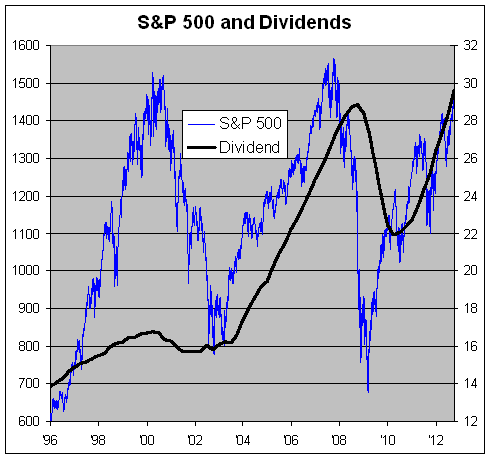By: Christopher Gannatti, CFA, Global Head of Research
Key Takeaways
- Despite continued underperformance in 2024, the biotech sector enters 2025 with a brighter outlook driven by groundbreaking innovations like mRNA cancer vaccines and CRISPR-based therapies.
- Structural shifts, including operational discipline and AI-powered drug discovery, signal resilience and a long-term growth narrative for biotech, even amidst macroeconomic and regulatory challenges.
- Historically low valuations, coupled with sector rotation dynamics and favorable policy initiatives, position biotech as a compelling opportunity for investors seeking growth in 2025.
In December 2023, I argued that biotech was poised for a turnaround after a prolonged stretch of underwhelming returns.1 Unfortunately, as we end 2024 and begin 2025, the sector has continued to underperform expectations, leaving investors disappointed. But this disappointment should not obscure the shifting dynamics that may favor a brighter outlook in the year ahead.
The Lingering Challenges
The biotech sector has faced a combination of structural and cyclical hurdles, presenting investors with no shortage of complexity. Funding for startups and mid-sized biotech companies, for instance, has been particularly tight. Yet, amidst this drought, there are pockets of improvement that signal resilience. Global venture funding reached $314 billion in 2024—a modest 3% rise from the previous year—with health care startups leveraging AI to attract outsized interest.2 The IPO market also showed flickers of life, with companies like Bicara Therapeutics, MBX and Zenas BioPharma collectively raising more than $700 million.3 Even Maze Therapeutics and Stada have begun preparing for public offerings, reflecting a gradual but meaningful restoration of confidence.4
Meanwhile, mergers and acquisitions have periodically occurred. Gilead Sciences, for example, made headlines with its $4.43 billion purchase of CymaBay Therapeutics,5 while Amgen’s $27.8 billion acquisition of Horizon Therapeutics6 underscored the appetite of established players to expand their pipelines. This momentum suggests that, even in tough environments, capital finds its way to innovation. It’s possible this can continue.
Regulatory uncertainty has also weighed heavily on biotech. The FDA’s reforms to its Accelerated Approval Program—demanding more stringent confirmatory trials—have lengthened timelines and heightened costs. Yet, even as these reforms create challenges, the FDA has supported therapies like Zenocutuzumab for rare cancers and Encorafenib for metastatic colorectal cancer.7 There is an evident balancing act here: regulatory hurdles on the one hand and support for high-potential breakthroughs on the other.
Adding to the complexity, the macroeconomic environment has been no less punishing. Rising interest rates and inflation have steered investors toward safer, income-generating assets. The rapid rate hikes of 2022 reshaped the landscape, squeezing valuations across growth sectors. In 2024, the expected reprieve—a series of rate cuts—failed to materialize, leaving biotech in a difficult position. For 2025, much hinges on how central banks manage monetary policy.
Even valuation metrics reveal a bifurcated story. On one side, established giants like Eli Lilly, buoyed by the runaway success of its GLP-1 drug Wegovy, command strong valuations. On the other, smaller speculative firms remain discounted, reliant on equity raises to fund their pipelines. This divergence mirrors investors’ preference for proven winners over high-risk innovators.
The Case for Optimism in 2025
What makes 2025 different? The answers lie in a mix of innovation, policy shifts and economic recalibrations—forces that have quietly gathered momentum even in this turbulent period.
A New Wave of Scientific Breakthroughs
Innovation remains biotech’s cornerstone, and recent advancements are poised to reshape the industry. Moderna and BioNTech, having pioneered mRNA technology for COVID-19 vaccines, are now targeting cancer and autoimmune diseases with personalized therapies. Moderna’s late-stage trials for its mRNA melanoma vaccine could mark a pivotal moment for oncology.
Gene editing is no less transformative. CRISPR Therapeutics and Vertex Pharmaceuticals, for instance, are awaiting regulatory decisions on exa-cel, a CRISPR-based therapy for sickle cell disease and beta-thalassemia. Success here would represent a historic milestone: the first widely available gene-editing therapy.
Personalized medicine is similarly redefining diagnostics and treatments. Companies like Exact Sciences are advancing multi-cancer early detection tests, bringing us closer to a health care model tailored to individual needs. These breakthroughs are not merely technical triumphs; they represent powerful investment narratives for a sector that thrives on addressing unmet needs.
Operational Discipline as a Competitive Edge
Biotech companies are responding to the funding squeeze by sharpening their operational focus. Biogen’s fit for growth restructuring aims to save $1 billion annually.8 Novartis has spun off its generics division, Sandoz, to concentrate on innovative medicines.9 Vertex Pharmaceuticals has doubled down on cystic fibrosis and genetic diseases, trimming investments in lower-potential projects.10 These strategies are not just about survival; they’re about positioning for growth when the tides turn.
Policy Winds at Biotech’s Back
The incoming administration is expected to bolster biotech innovation with targeted initiatives. Proposals to streamline FDA processes for rare diseases, expand R&D tax credits and promote public-private partnerships could reshape the landscape. Support for domestic manufacturing—a growing concern in the wake of global supply chain disruptions—may also strengthen the sector’s resilience. While the specifics remain uncertain, the direction is promising.
The Megatrend Convergence: AI Meets Biotech
Few sectors illustrate the power of convergence like biotech. Companies such as Recursion Pharmaceuticals and Insilico Medicine are using AI to revolutionize drug discovery, identifying candidates faster and optimizing molecule design with unprecedented efficiency. This intersection of biotech and AI taps into multiple megatrends, making it a magnet for forward-looking investors.
The Broader Rotation to Growth
Finally, as equity markets stabilize, sector rotation dynamics favor biotech. The technology sector, once the dominant growth story, faces saturation and regulatory pressures. Biotech, by contrast, offers a compelling alternative: a growth sector tied to fundamental human needs and demographic tailwinds like aging populations. With many biotech firms trading at historically low multiples, the stage is set for capital to flow back into the sector.
Closing Thoughts
Last year, I confidently predicted that biotech was poised for a rebound. The reality of 2024 proved me wrong, but it also reinforced an essential lesson: timing the market in a sector as volatile as biotech is no easy feat. However, the disappointment of 2024 has set the stage for what could be a remarkable year ahead.
The pieces are aligning—breakthrough innovation, policy initiatives, operational discipline and favorable market dynamics are converging to create fertile ground for a resurgence. For those willing to navigate the inherent complexities, 2025 presents an opportunity to turn past missteps into momentum. Thoughtful analysis and a long-term perspective will be the keys to making the most of what’s next in biotech. For investors with patience and conviction, 2025 could mark a pivotal chapter in biotech’s evolution. The convergence of innovation, policy support and favorable economic trends provides fertile ground for renewed optimism. As always, thoughtful analysis and a long-term perspective remain the keys to navigating this complex but rewarding sector.
Originally posted on January 28, 2025 on WisdomTree blog
PHOTO CREDIT: https://www.shutterstock.com/g/yalax
VIA SHUTTERSTOCK
FOOTNOTES AND SOURCES
1https://www.wisdomtree.com/investments/blog/2023/12/05/is-it-time-for-biotech
2https://news.crunchbase.com/venture/global-funding-data-analysis-ai-eoy-2024/
3Ben Fidler, “Three biotechs raise $700M in Rare burst of IPO activity,” Biopharma Dive, 9/12/24.
4“Third Rock-backed Maze Therapeutics reveals profit in US IPO filing,” Reuters, 1/7/25; Emma-Victoria Farr, “German drug firm Stada lines up new chairman and board ahead of IPO,” Reuters, 1/9/25.
5https://www.gilead.com/news/news-details/2024/gilead-sciences-announces-completion-of-acquisition-of-cymabay
6https://www.amgen.com/newsroom/press-releases/2023/10/amgen-completes-acquisition-of-horizon-therapeutics-plc
7https://www.fda.gov/drugs/resources-information-approved-drugs/oncology-cancerhematologic-malignancies-approval-notifications
8Torben Danger, “Biogen’s CFO on Leading a People-First Transformation,” Boston Consulting Group, 7/18/24.
9https://www.novartis.com/news/media-releases/novartis-executes-sandoz-spin-completing-strategic-transformation-leading-focused-innovative-medicines-company
10https://investors.vrtx.com/news-releases/news-release-details/vertex-provides-pipeline-and-business-updates-advance-upcoming-0
DISCLOSURES
U.S. investors only: Click here to obtain a WisdomTree ETF prospectus which contains investment objectives, risks, charges, expenses, and other information; read and consider carefully before investing.
There are risks involved with investing, including possible loss of principal. Foreign investing involves currency, political and economic risk. Funds focusing on a single country, sector and/or funds that emphasize investments in smaller companies may experience greater price volatility. Investments in emerging markets, currency, fixed income and alternative investments include additional risks. Please see prospectus for discussion of risks.
Past performance is not indicative of future results. This material contains the opinions of the author, which are subject to change, and should not to be considered or interpreted as a recommendation to participate in any particular trading strategy, or deemed to be an offer or sale of any investment product and it should not be relied on as such. There is no guarantee that any strategies discussed will work under all market conditions. This material represents an assessment of the market environment at a specific time and is not intended to be a forecast of future events or a guarantee of future results. This material should not be relied upon as research or investment advice regarding any security in particular. The user of this information assumes the entire risk of any use made of the information provided herein. Neither WisdomTree nor its affiliates, nor Foreside Fund Services, LLC, or its affiliates provide tax or legal advice. Investors seeking tax or legal advice should consult their tax or legal advisor. Unless expressly stated otherwise the opinions, interpretations or findings expressed herein do not necessarily represent the views of WisdomTree or any of its affiliates.
The MSCI information may only be used for your internal use, may not be reproduced or re-disseminated in any form and may not be used as a basis for or component of any financial instruments or products or indexes. None of the MSCI information is intended to constitute investment advice or a recommendation to make (or refrain from making) any kind of investment decision and may not be relied on as such. Historical data and analysis should not be taken as an indication or guarantee of any future performance analysis, forecast or prediction. The MSCI information is provided on an “as is” basis and the user of this information assumes the entire risk of any use made of this information. MSCI, each of its affiliates and each entity involved in compiling, computing or creating any MSCI information (collectively, the “MSCI Parties”) expressly disclaims all warranties. With respect to this information, in no event shall any MSCI Party have any liability for any direct, indirect, special, incidental, punitive, consequential (including loss profits) or any other damages (www.msci.com)
Jonathan Steinberg, Jeremy Schwartz, Rick Harper, Christopher Gannatti, Bradley Krom, Kevin Flanagan, Brendan Loftus, Joseph Tenaglia, Jeff Weniger, Matt Wagner, Alejandro Saltiel, Ryan Krystopowicz, Brian Manby, and Scott Welch are registered representatives of Foreside Fund Services, LLC.
WisdomTree Funds are distributed by Foreside Fund Services, LLC, in the U.S. only.
You cannot invest directly in an index.



